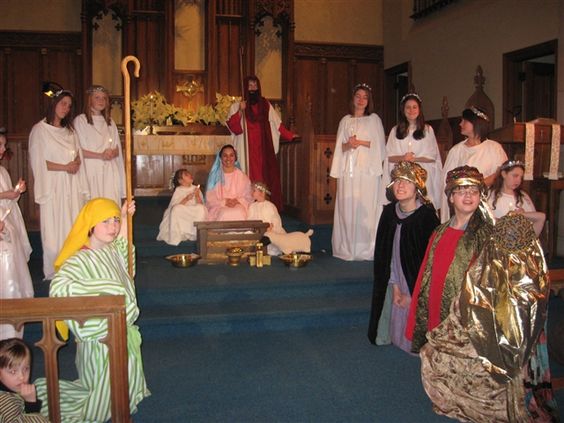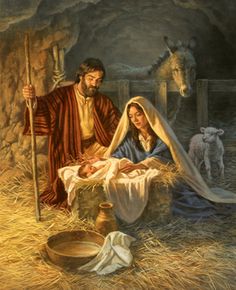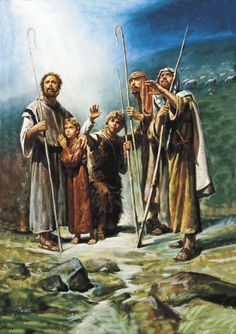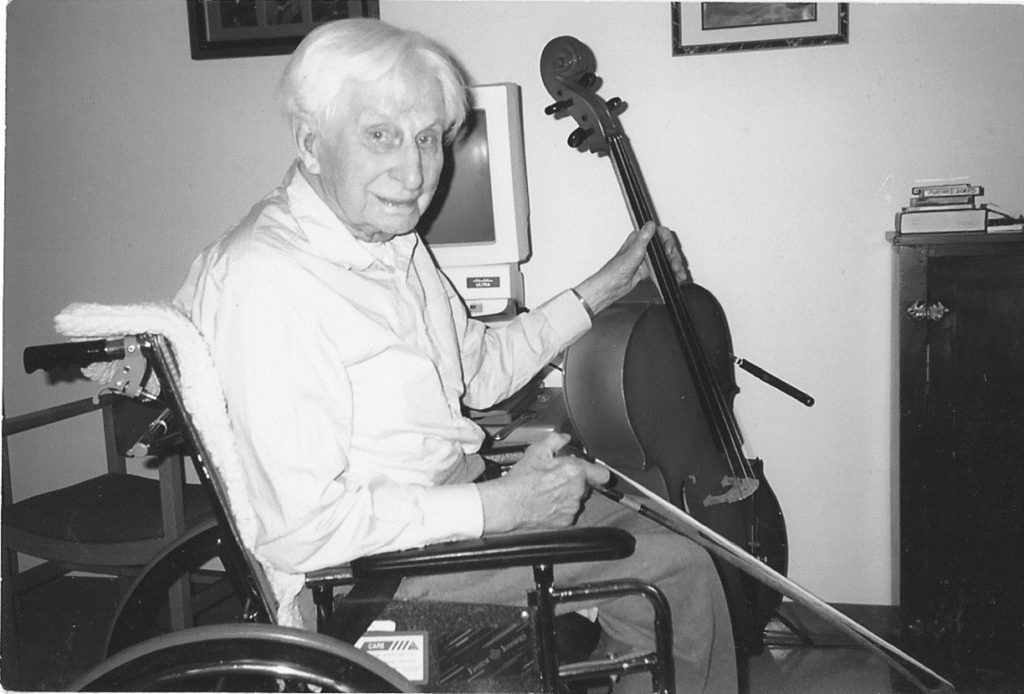
Proud Mother Showing Off Her Family



When my sisters and I were youngsters, our family attended a German language Mennonite church. Although I had only a rudimentary grasp of the language, at Christmas I did get caught up in the excitement of the festivities, pageantry and food. On Christmas Eve the church was filled to capacity and children enacted the events leading to the birth of Jesus, the Messiah Jews had long waited for. For a short time I was transported back to an earlier, simpler time. There was magic in the air.
Now, when I go into a mall and hear renditions of Jingle Bells, I Saw Mommy Kissing Santa Claus and other Christmas tunes, I’m aware of a vast chasm between my early experience of Christmas and the present commercial version. The anxious scrambling to find appropriate gifts suggests to me I’ve entered an alien culture which has no mystery, no magic, and no soul.
Hoping to regain a sense of the earlier mystique I experienced many years ago, last week I reviewed the events of Christmas as I had seen them depicted on stage when I was a kid. To do this, I needed to let go of the present and enter a world with values and practises quite foreign to me. I also needed to accept the possibility of the miraculous.
At that time Caesar Augustus ruled over the far flung Roman Empire and Herod the Great was king of Palestine (Judea). The empire was a cauldron of suspicion, intrigue and treachery. Seeking protection from evil, rulers at various levels built temples and shrines to a plethora of gods. To enhance their image and standing with the people, they sought to be identified with these gods. Herod had a well deserved reputation for savagery, having ordered the slaying of rivals and also members of his own family.
The story of Christmas began when the angel Gabriel appeared to Mary and announced that the Holy Spirit would “overshadow” her and cause her to become pregnant. Although she was a virgin and had not slept with Joseph, to whom she was betrothed but not yet officially married, she would bear a son who would bring hope to the people. She was to name him Jesus. Not long after, Caesar Augustus issued a decree compelling all citizens to return to their place of birth to be registered for taxation and military service. Mary was already “heavy with child” when she, riding a donkey, and Joseph embarked on the approximately three day journey to Bethlehem, a small town in the hill country of Judea.
Arriving in Bethlehem, they found the town clogged with people, horses, donkeys and camels. Joseph searched for accommodation for himself and the weary, pregnant Mary. At each door he was told, “the inn is full. We have no room for you.” He was relieved when a compassionate innkeeper looked at Mary and said, “We have no space for you, but if you like, you can stay in the stable behind the inn.” It was in this stable, amidst hay, animals and farm odours, that Mary gave birth to the Jewish Messiah. She wrapped him in cloths and laid him in a manger.

That night in the surrounding hill country, shepherds were tending their sheep when angels appeared in the sky singing and announcing to them that Jesus had been born in Bethlehem. Although startled and greatly astonished, they didn’t question what they were seeing. Like Jews over the centuries, they had been eagerly anticipating this event. They left the sheep and hurried into Bethlehem where they found Mary, Joseph and the newly born child in a stable.

At about this time three men of noble birth, probably astrologers, were observing the sky in another country. Suddenly they became aware of a star they had not seen previously. The star appeared to be moving and being curious about wonders in the sky, they made preparations to follow it. Some time later, after receiving directions at King Herod’s palace, they arrived in Bethlehem and presented the child with gifts of gold, frankincense and myrrh.

This is the story, pretty much based on the account of Matthew, a former tax collector and Luke, a physician of Greek origin. I realize it seems totally implausible, but when I consider the thorny issues facing humankind at this time, I feel ready for a more optimistic message, even the supernatural.

About 25 years ago a chiropractor performed an “old school” maneuver on me for which he should have done jail time. It severely disturbed my sciatic nerve and for 6 weeks the pain in my back was so intense I couldn’t walk except by using powerful, suicide inducing pain medications. My mind sometimes returns to those difficult days when I think of my friend Jim.
Until about 6 months ago, Jim worked in the woods. An elite faller with a muscular frame, he had the strength to handle a large chain saw in steep terrain. I always enjoyed the visits when he came into our community. With alert blue eyes, long blond hair and a quick optimistic smile, he attracted people wherever he showed up. He bought a new Ford pickup every two years and kept it in immaculate condition. I felt deeply disappointed when I learned he had begun associating with a group of young individuals who slept during the day and partied at night.
As I was walking along Daly Avenue in Hedley one day, Jim pulled over in a battered red Toyota pickup he must have rescued from an auto wrecker. His morose expression told me something had changed. “I was let go by my employer. The finance company repossessed my pickup,” he said, turning off the ignition. “My wife got fed up with me hanging around the house, then leaving her to put the boys to bed while I went and partied. She told me to move on and not bother coming back. I really miss my boys.” He paused for a moment, wiped a tear from his cheek, then said, “I need to change my life.”
In subsequent encounters the smile was gone, replaced by an expression of deep despair. Several times he again said, “I know I need to change my life.” Initially, I thought he would make the effort to turn his life in a better direction. The pain was searing his soul. I said more than once, “Jim, your friends are eroding your understanding of who you are. You need to break from your associations.” He agreed, but seemed unable to unfetter himself from the devious forces accelerating his slide into futility.
Reflecting back now on my own experience, I realize that like Jim, I had little hope my circumstances would change. I didn’t know how long I could live with the pain. I was eating mostly green grapes and flavoured yogurt and shedding weight, Linda feared my body was going into shock. Many nights, after she went to bed, I sat on the floor of our livingroom, seeking a way out of this frightening cauldron of physical, mental and emotional misery. The doctor who prescribed the pharmaceuticals had not troubled to warn me they might bring on thoughts of suicide. Although weak with pain, I considered dragging my body to Clearbrook Rd. and throwing myself in front of a big truck. The thought holding me back was that it would not be fair to Linda.
After about 6 weeks of crawling on the floor on hands and knees, I began getting help from a different chiropractor and a personal trainer. Now, to retain my ability to walk, I still do stretches and exercises to strengthen my body core. Since then, I’ve come to realize most of us will at some time need to grapple with a potentially life shattering circumstance. Several of my friends have lost their spouse, a few have been cut down in their prime by cancer or a debilitating illness. Others have been overtaken by financial loss. I’ve wondered what enables some to battle fiercely and again thrive, while others, like Jim, remain bogged down in mental and emotional quicksand, unable to extricate themselves.

I’ve concluded that one factor is the thoughts we have entertained over the years. My Dad was always generous with time and money. He sought to uplift people whenever possible. His thoughts made him optimistic, even in difficult times. At age 89 he fell and broke a hip. For the next five years he was in a long term care facility, unable to walk, get in or out of bed, or even turn over in bed. I asked him if he was hanging on to life for his family. I assured him if he wanted to let go, we’d miss him but we would be o.k. He replied, “No, I still like to live.”